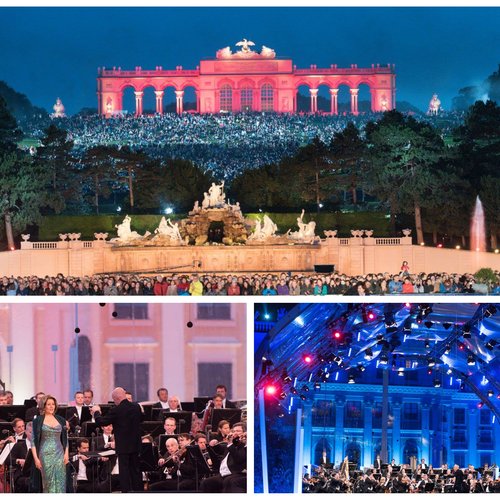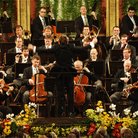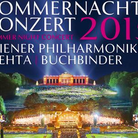Interview with the Vienna Phil's Vice-President
As the spotlight turns on the Vienna Philharmonic as part of our Great Composer of the World series, we catch up with their Vice-President Alexander Steinberger to find out what makes the orchestra tick.
The Vienna Philharmonic Orchestra has an illustrious 160-year history. It’s been praised by composers including Wagner, Bruckner, Brahms, Mahler and Richard Strauss. Why do you think it’s so special?
I think it is the combination of high quality, highly motivated musicians who focus on bringing the best performance to our audiences, our traditions and the fact that we are lucky enough to work together with the world elite. These include, first and foremost, the conductors at our concerts and at the Vienna State Opera and the Salzburg Festival, as well as the soloists and opera singers.
Not every orchestra has the opportunity to harvest the talent of these geniuses to lead the musicians. With reference to our past – in its golden age, in the late 19th and early 20th centuries, Vienna was a melting pot in central Europe. Many different cultures blended and influenced each other, especially the Slavic traditions, which were a major influence on Vienna and the musicians of the VPO. These factors as well as the unique honour of playing for these composers or even under the baton of historical greats such as Wagner, Bruckner, Brahms, Mahler or R. Strauss have made us unique.
The Vienna Phil’s members are the most elite of musicians, as you first have to prove yourselves by playing in the Vienna State Opera Orchestra for three years before you can apply for membership of the Vienna Phil. Tell us about the relationship between the Vienna Philharmonic Orchestra and Vienna State Opera Orchestra.
Actually for an individual musician, to win an audition for the Vienna State Opera Orchestra includes the VPO as well. Each musician immediately begins playing in both orchestras, so that everyone is connected, integrated and learning to play the opera and symphonic repertoire. After a minimum of three years, a musician can become a member of the VPO.
For the Vienna State Opera the combination of these two institutions means better coordination and care in the program planning according to the VPO's schedule. For the VPO, this means the same consideration is given to the Vienna State Opera. The musicians have the advantage of gaining the widest range of musical knowledge as well as the challenge of playing, on the one hand, well prepared concerts and opera premieres. On the other hand, repertoire operas are played at a very high level but sometimes without any previous rehearsal. That means that all musicians have to be very concentrated, flexible and at their best at all times. We are convinced that this symbiosis is in the interest of both institutions.
In many orchestras there can be dissatisfaction amongst the ranks. The Vienna Phil is rather unique in its structure, founded on democracy whereby members vote for every decision made. Do you think this democratic process keeps all the members satisfied?
My opinion is that every musician in the world always wants to perform at his best possible level. The worst thing and biggest danger is demotivation resulting from chronic dissatisfaction when an individual cannot change his circumstances.
I am convinced that our musicians themselves know best which decisions have to be made and our democratic structure helps each musician to identify and take personal responsibility for the entire results of our projects.
Playing in an orchestra teaches many life skills, like when to lead and when to follow, and teamwork. Does the Vienna Phil do much education and outreach work to teach these transferable skills?
The VPO has a few different projects. Firstly we have a music education program for kids in different ages, called 'passwort:klassik', which includes attending rehearsals, concerts and music camps. The 'Angelika Prokopp Summer Academy', which takes place in Salzburg, is a program where young musicians are taught by various orchestra members. The subjects include audition seminars and chamber music coaching.
The annual International Orchestra Institute in Attergau, to which students are invited from all over Europe and abroad, takes place each year in August in St. Georgen am Attersee. The target is to make music together in the musical traditions of the VPO, first individually, then in groups, then in a full orchestra, independent of the students' musical background.
But back to your question, to learn these life skills - when to lead, when to follow, and teamwork - is, in my opinion, one of the big challenges in the musical life of each musician, a life in which you never stop learning.
You’ve just had your annual Summer Night Concert, a huge free concert in the gardens of Schönbrunn Palace. Describe the atmosphere and what it was like playing to so many people in the open air?
Year after year, this concert is an enormous challenge for the VPO. As the organizer of an event in which we welcome approximately 100,000 guests, perform live and which is broadcast on over 60 TV channels worldwide, there are many organizational challenges and much responsibility must be shouldered to make this a success.
For the musicians it is also an enormous challenge with respect to acoustic conditions faced - how to adapt to differences in temperature or wind conditions. When the weather plays along, and as this year, with the talents of the great Valerie Gergiev and Benjamin Schmid, the setting and atmosphere of the gardens of Schönbrunn create a uniquely beautiful occasion. So many people, including many young people from all over the world, share for two hours a common experience. This is very satisfying for us.
And tell us about the world-famous Vienna Philharmonic Ball. Why do you think it’s established its international reputation?
The first Philharmonic Ball was held in 1924, and had the specific goal of raising money for the orchestra's pension fund, which had been obliterated by inflation in the aftermath of World War I. The musical piece Festfanfare, roughly translated as 'Celebratory Fanfare' was specially composed by Richard Strauss for this first ball.
The VPO Ball is the only ball where the VPO performs yearly at the opening, led by one of our famous conductors. What also makes it special and sets it apart from other balls is that in addition to the VIPs from the worlds of politics and finance, so many musical and performing artists take part in our ball.
Philharmonic first violinist Andreas Grossbauer and his team are not only responsible for the organization of the ball but also for its continual development. For example, in 2011 there was an unusual world premiere performed by various small groups of Philharmonic orchestra members in different areas throughout the incomparably beautiful premises of the Musikverein.
What do you like most about your job?
As a violinist in the VPO and in the Vienna State Opera I have the pleasure of making music together with my colleagues and world-leading conductors. Six years ago, I was also elected to position of Vice-President of the VPO. All of my responsibilities are varied and fascinating. My tasks have the common positive goal of bringing enjoyment to our audiences around the world.






